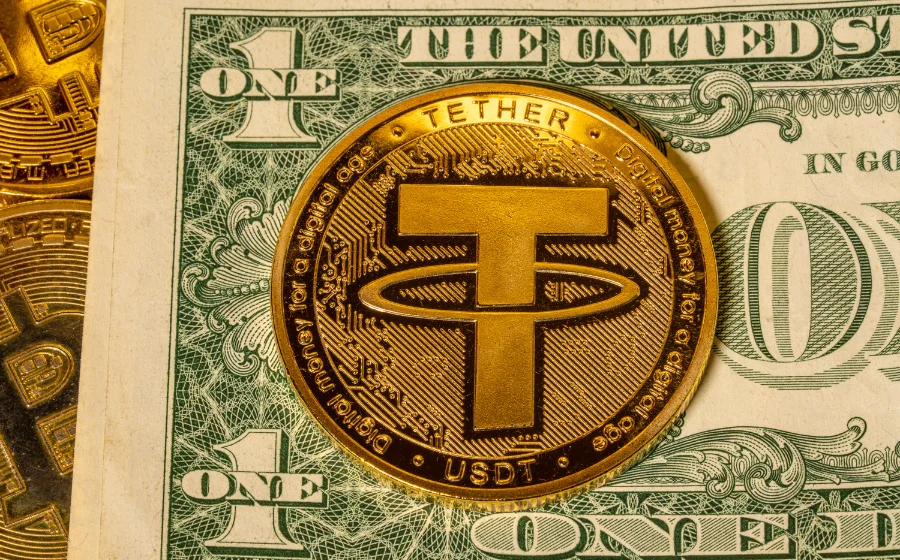
KEYTAKEAWAYS
- Bitcoin spot ETFs provide an easier, regulated way to invest in Bitcoin without needing to hold the asset directly.
- Investors benefit from regulatory oversight, but Bitcoin’s inherent volatility remains a key risk factor.
- Bitcoin futures ETFs allow speculation on future prices without holding Bitcoin, differing from spot ETFs.

CONTENT
Bitcoin ETFs offer a regulated way to invest in Bitcoin without direct ownership, but the volatility of the asset and market risks make cautious investment essential.
WHAT IS A BITCOIN ETF?
In early 2024, the U.S. Securities and Exchange Commission (SEC) officially approved the listing of 11 Bitcoin spot ETFs, marking the first batch of regulated Bitcoin spot ETFs in the United States.
This approval offers investors a new option for Bitcoin investment—besides purchasing Bitcoin directly through cryptocurrency exchanges, they can now invest in Bitcoin via a Bitcoin spot ETF.
An ETF (Exchange-Traded Fund) is a type of fund that can be bought and sold on stock exchanges. It typically consists of a basket of stocks or securities and is designed to track the performance of a specific index or asset.
A Bitcoin spot ETF, in particular, tracks the price movements of Bitcoin, allowing investors to invest in actual Bitcoin holdings through a familiar and traditional financial vehicle.
-
Advantages of Investing in Bitcoin Spot ETFs
The launch of Bitcoin spot ETFs lowers the barrier to entry for investors looking to participate in the Bitcoin market, while also offering greater security.
Since these ETFs are regulated by oversight bodies, investors no longer need to purchase or hold Bitcoin directly, reducing the risks associated with cryptocurrency exchanges, such as hacking or exchange insolvency.
This regulated investment option makes Bitcoin spot ETFs a safer choice, especially for those who are less experienced with cryptocurrency operations.
>>> More to read : Margin Trading Crypto in 2024: What It is, How It Works & Top 5 Platforms
BITCOIN ETF | SPOT VS. FUTURES
In global markets, aside from the 11 Bitcoin spot ETFs approved by the SEC in early 2024, countries like Canada, Germany, and Brazil have introduced both Bitcoin spot ETFs and Bitcoin futures ETFs over the past few years.
But what’s the difference between these two types of ETFs? The key difference lies in the assets they track.
▶ Bitcoin Spot ETF: Tracking Bitcoin’s Price Directly
A Bitcoin spot ETF tracks the actual price of Bitcoin, meaning its value is directly tied to the Bitcoin spot market. When investors purchase a Bitcoin spot ETF, the issuer is required to buy Bitcoin from the virtual asset market and transfer it to a custodian.
The custodian holds the Bitcoin, and the issuer creates new ETF shares that are sold through brokers to interested investors. As a result, Bitcoin spot ETFs reflect the price fluctuations of actual Bitcoin and provide a secure and regulated investment vehicle.
▶ Bitcoin Futures ETF: Tracking Futures Contracts Prices
In contrast, a Bitcoin futures ETF tracks the price of Bitcoin futures contracts. Futures are derivative products representing an agreement between two parties to buy or sell an asset at a predetermined price at a specified future date.
In the case of a Bitcoin futures ETF, the focus is on the future price of Bitcoin, not its current market price.
This allows investors to speculate on the future price movements of Bitcoin without holding the asset itself, and the issuer does not need to hold actual Bitcoin.
As a result, Bitcoin futures ETFs tend to have a lower direct correlation with the Bitcoin spot market, and their prices can diverge from the spot price, especially as futures contracts near expiration.
>>> More to read : What Is Crypto Staking?: Overview, How It Works, & Future
PROS AND CONS OF BITCOIN ETFs
▶ Bitcoin ETF Pros
1. Lower Investment Barrier
For both individual and institutional investors, buying Bitcoin directly can be complicated due to the need to set up cryptocurrency exchange accounts and manage wallets.
However, Bitcoin spot ETFs allow investors to access Bitcoin through traditional stock brokerage accounts, making it easier and more familiar for the majority of investors to enter the crypto market.
2. Diversified Investment Portfolio
Historically, investors may have faced barriers to entering the cryptocurrency market. With the rise of Bitcoin spot ETFs, they can now gain exposure to Bitcoin through ETFs, adding diversity to their investment portfolios and enhancing overall asset allocation.
3. Regulatory Oversight
Although Bitcoin spot ETFs are a relatively new product, they operate under similar regulatory frameworks as traditional ETFs. This provides investors with a layer of safety and security, as these products are subject to oversight by financial authorities.
▶ Bitcoin ETF Cons
1. High Volatility
The cryptocurrency market is notoriously volatile, and Bitcoin is no exception. Since Bitcoin spot ETFs track the price of Bitcoin, their value is directly tied to Bitcoin’s price movements, which can experience significant fluctuations, leading to potential high volatility in the ETF’s price.
2.Security Risks
Despite operating under a regulatory framework, Bitcoin spot ETFs require the issuer to hold actual Bitcoin. Even though custodians manage the assets, there remains a cybersecurity risk associated with holding and storing Bitcoin.
Choosing a reputable and trustworthy ETF issuer is crucial for mitigating these risks.
3. Liquidity Constraints
As a relatively new financial product, Bitcoin spot ETFs have not yet achieved the same trading volume as traditional ETFs. In the event of a market sell-off, liquidity constraints may arise, making it difficult for investors to sell their shares promptly, potentially leading to increased market risk.
>>> More to read : What Is Stablecoin ? Stable Virtual Assets
ARE BITCOIN ETFS WORTH INVESTING IN?
Bitcoin surged by 60% in 2021, dropped 64% in 2022, and then soared 155% in 2023. Over the past five years, Bitcoin has experienced several corrections of up to 45%.
While Bitcoin’s high returns attract investors, it’s crucial not to overlook the significant risks behind it. The launch of Bitcoin spot ETFs is expected to bring unprecedented volatility to the ETF market.
ETFs have traditionally been regarded as financial products that offer diversified risk and convenience for investors. Now, with the emergence of Bitcoin ETFs, the market could shift its focus to this “innovative ETF,” potentially opening up more investment opportunities.
However, whether it’s Bitcoin spot, spot ETFs, or futures ETFs, Bitcoin remains a relatively volatile asset compared to bonds or stocks, which derive their value from tangible debt or ownership rights. Bitcoin’s value largely depends on market supply and demand, making its future price difficult to predict.
As the Chairman of the U.S. Securities and Exchange Commission (SEC) noted after approving the Bitcoin spot ETF:
“We did not approve or endorse Bitcoin, investors should remain cautious about the myriad risks associated with Bitcoin and products whose value is tied to crypto.”


















